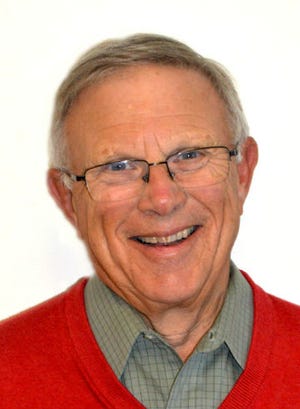Marc L. Goldberg
“Leadership is not the ability to tell people what to do,” according to Cameron DeBoer of McLean & Company. Leadership is influence and empathy. Leadership doesn’t always entail having a title. It has more to do with actions. So what are the qualities of a leader?
Integrity: Integrity in leaders refers to being honest, trustworthy and reliable. Leaders with integrity act in accordance with their words — in other words, they practice what they preach — and own up to their mistakes, as opposed to hiding them, blaming their team or making excuses. They are transparent in their communications presenting an authentic, believable individual who generates enthusiasm and loyalty. They take the “high road” when addressing values-based decisions and therefore set the example for their team.

Having and sharing a vision: Leadership vision is the ability to concentrate on the most important aspects of self or business, such as what you want to achieve and what type of leader you aspire to be. Your vision can incorporate lessons from your past, as well as present realities that must be addressed and your future aspirations. An organizational vision statement identifies the objectives of an organization and helps define what it hopes to accomplish over the long term. It is aspirational. Having a vision gives teams purpose and direction.
Use of influence for good: Using influence means applying one’s influence to create collaborative environments where the strengths of various organizations can be applied to a given objective. Influence leadership is having an impact on the beliefs and actions of the people who are being led. Leaders understand what motivates team members, which helps create commitment and constructive work environments. This use of influence begins with trust and trust commences with accepting constructive feedback.
new owners:Cape Cod Irish Village will move to Resort and Conference Center in Hyannis
Use of power to influence organizational direction: Leading and guiding one’s team is the primary responsibility of leaders and the application of power creates the trajectory. The concepts of power and leadership are closely linked. Power can be considered as the ability to influence others. Power is used by leaders to reach group goals, and if you have knowledge about the operation of power in an organization, it enhances your capacity to be an effective leader.
Praise: Genuine recognition rewards efforts along with accomplishments. It reinforces positive behaviors, builds self-esteem and confidence, and boosts motivation and enthusiasm. Praise is not always top-down, but encourages employees to praise teammates.
‘Ask Me Questions’:Cape Cod fishermen host fun, educational program at Chatham Fish Pier
Self-awareness: Self-awareness is the ability to focus on yourself and how your actions, thoughts, or emotions do or don’t align with your internal standards. Key areas for self-awareness include our personality traits, personal values, habits, emotions, and the psychological needs that drive our behaviors.
Listen first, speak last: Steven Covey, author of “7 Habits of Highly Effective People,” said it best: Listen with the intent to understand, not just reply. When leaders listen first and speak last they take in team member inputs before communicating. This approach creates trust in leadership.
Labor shortages:Cape bus driver shortage leaves public transit riders stranded
Empathy: The term “empathy” is used to describe a wide range of experiences. Emotion researchers generally define empathy as the ability to sense other people’s emotions, coupled with the ability to imagine what someone else might be thinking or feeling. Renowned psychologists Daniel Goleman and Paul Ekman have identified three components of empathy: Cognitive, Emotional and Compassionate.
According to Gallup Inc., leaders are good at building relationships inside and outside their organizations, developing people to become the next generation of leaders, and are change-makers moving their organizations in positive directions in meeting their vision, inspiring others to reach outside their comfort zones to think and act strategically. They think critically and ask questions beyond the obvious and focus on accountability for actions. And most importantly they are excellent communicators — authentic, transparent and objective.
Leadership is the ability of an individual or a group of individuals to influence and guide followers or other members of an organization. The key word is “guide.” As a leader, the role is to create a roadmap for organizational success.
Contributed by Marc L. Goldberg, Certified Mentor. SCORE Cape Cod & the Islands, www.capecod.score.org, capecodscore@scorevolunteer.org508-775-4884. Source: Cameron DeBoer, McLean & Company. Steven Covey, “7 Habits of Highly Effective People,” Gallup Inc., Clifton Strengths, “Effective Leadership: How to be a Better Leader.”